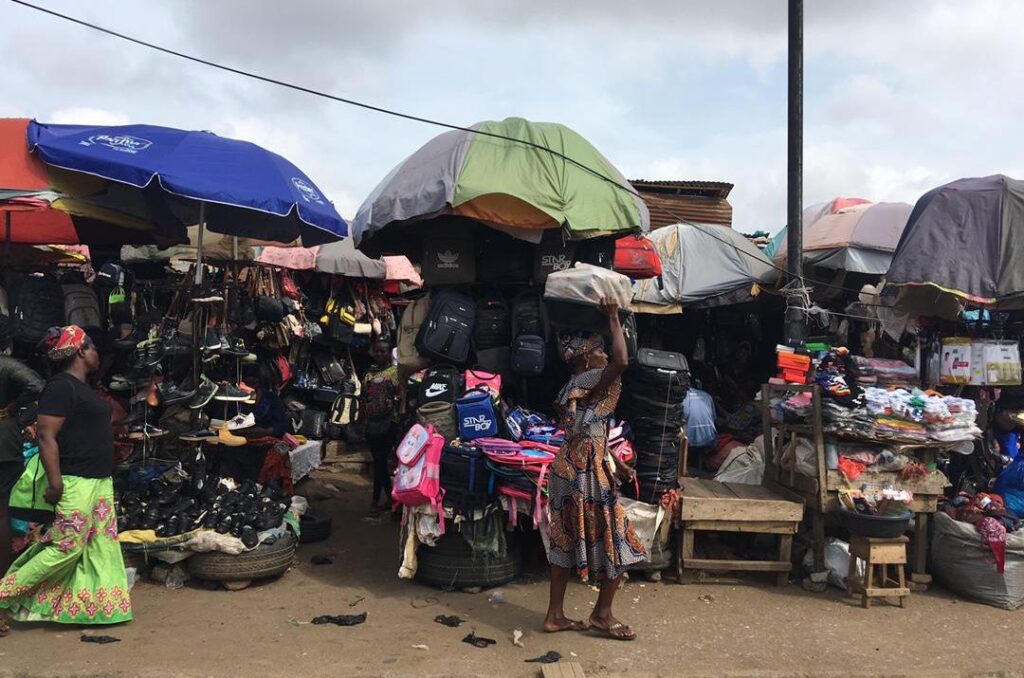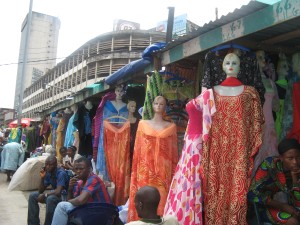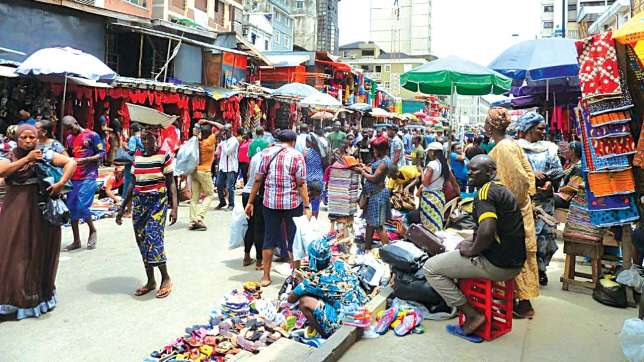Lagos, Nigeria’s most populous and vibrant state, is a hub for diverse shopping experiences, including second-hand clothes, popularly called Okrika or Akube. These clothes have grown in demand due to their affordability, durability, and often superior quality compared to boutique offerings. Okrika markets not only cater to the low- and middle-income earners but also provide an avenue for bargain hunters and fashion enthusiasts to find unique, quality items.
While the Nigerian government has banned the importation of thrift clothes, these markets thrive, driven by high demand. From bustling mega markets to specialized hubs, Lagos offers various options for buying second-hand clothes, with some markets even doubling as depots for Okrika bales. Below is a detailed guide to 12 of the best markets in Lagos for second-hand clothing.
1. Katangua Market
- Location: Super Bus Stop, between Ile-Epo and Abule-Egba.
- Highlights: Known as the largest Okrika market in Lagos, Katangua is synonymous with second-hand clothing. It offers everything from casual wear to first-grade shoes and durable bags. Fresh stocks usually arrive over the weekend, with peak market days being Mondays, Wednesdays, and Fridays.
- Unique Feature: Despite being synonymous with Okrika, the market also sells affordable household items.

2. Yaba Market
- Location: Mainland, Yaba.
- Highlights: A favorite for students from nearby University of Lagos (UNILAG) and Yaba College of Technology (YABATECH), Yaba market is famous for its affordability and wide range of options. You can find UK Okrika jeans, shirts, bags, and shoes.
- Best Times: Wednesdays and Fridays between 6 am and 9 am.
- Unique Feature: The market thrives on haggling, so sharpening your bargaining skills is essential.
3. Tejuosho Market
- Location: Ojuelegba-Itire Road, Yaba.
- Highlights: This ultra-modern shopping complex offers both new and second-hand clothes. It houses over 2,300 shops in a spacious, four-story building, making it one of the most organized markets for Okrika in Lagos.
- Unique Feature: Post-renovation, it caters to both middle-class and lower-income earners. The market is best visited during the day for a bustling shopping experience.

4. Oshodi Market
- Location: Oshodi, Lagos.
- Highlights: After undergoing major reorganizations, Oshodi Market is now easier to navigate. It offers a broad range of affordable, high-quality Okrika clothes.
- Best Times: Mondays, especially in the morning and evening.
- Unique Feature: A convenient alternative to Katangua for Oshodi residents, offering similar quality without requiring long travel.
5. Balogun Market
- Location: Lagos Island.
- Highlights: Often referred to as Eko Market, Balogun spans multiple streets on Lagos Island. It is a hub for textiles, fabrics, and second-hand clothing, including shoes, bags, and belts.
- Unique Feature: Its sprawling size and variety make it a one-stop-shop for bargain hunters and fashion enthusiasts.

6. Badagry Market
- Location: Badagry, near the Benin-Seme border.
- Highlights: Badagry serves as a major entry point for second-hand clothes imported via Cotonou, Benin Republic. The market is sectionalized into new and fairly used clothing divisions.
- Unique Feature: It provides access to fresh Okrika items directly from their source at affordable prices.
7. Ajah Market
- Location: Lagos Island.
- Highlights: While primarily known for staple food items, Ajah Market offers a wide range of second-hand clothes, shoes, and bags.
- Best Times: Early mornings on Sundays.
- Unique Feature: The market combines affordability with convenience for residents on Lagos Island.
8. Aswani Market
- Location: Isolo Way, Isolo.
- Highlights: Aswani Market is renowned for its high-quality, pocket-friendly second-hand clothes. Traditionally, market days were held on Tuesdays, but Wednesdays have been added in recent years.
- Unique Feature: Located near Murtala Muhammed International Airport, it’s accessible and offers a vast selection of both clothing and footwear.

9. Bali Market
- Location: Off Broad Street, Lagos Island.
- Highlights: Bali Market is a go-to destination for corporate and office wear. It specializes in first-grade designer shirts, trousers, and suits at affordable prices.
- Unique Feature: Perfect for professionals, job seekers, and anyone looking for classy second-hand clothing without compromising on quality.
10. Idumota Market
- Location: Lagos Island.
- Highlights: Known for its thriving second-hand clothes section, Idumota also offers a variety of goods. It attracts shoppers looking for unique and affordable clothing.
- Unique Feature: Its central location on Lagos Island makes it easily accessible for residents and visitors alike.
11. Mushin Market
- Location: Mushin, Lagos.
- Highlights: This vibrant market offers a broad spectrum of second-hand clothes, from casual wear to traditional attire.
- Best Times: Daytime hours.
- Unique Feature: The market is known for its variety and affordability, making it a popular choice among Lagosians.

12. Arena Market
- Location: Oshodi-Isolo.
- Highlights: A lesser-known but well-stocked market, Arena Market caters to shoppers seeking high-quality Okrika items in an organized environment.
- Unique Feature: Its well-structured layout and diverse selection of goods make it stand out from other second-hand clothing markets.
Why Okrika Markets Matter
The importance of Okrika markets in Lagos extends beyond providing affordable clothing. They serve as a lifeline for low- and middle-income earners struggling with the rising costs of living. The durability and quality of these thrift items often surpass their boutique counterparts, making them an attractive option for many.
Challenges and Controversies
While Okrika markets thrive, their existence is not without controversy. The Nigerian government’s ban on importing thrift clothes has not curbed their availability, partly due to lax enforcement and high demand. Some health concerns have also been raised about wearing second-hand clothes, but these issues are often overlooked by buyers prioritizing affordability.
Tips for Shopping Okrika in Lagos
- Timing is Key: Arrive early on market days (e.g., 6 am at Katangua) to access fresh stocks and high-quality items.
- Hone Your Bargaining Skills: Negotiation is crucial in markets like Yaba and Oshodi to secure the best deals.
- Visit Multiple Markets: Explore different markets to find specialized items, such as office wear at Bali or casual outfits at Katangua.
- Inspect Items Thoroughly: Check for defects or wear and tear before purchasing.
Conclusion
Lagos’ second-hand clothing markets are more than just a source of affordable fashion; they represent a vital part of the city’s economy and culture. From the sprawling Katangua to the refined Tejuosho, these markets cater to diverse needs, ensuring every shopper finds something that suits their style and budget. Whether you’re a student, professional, or bargain hunter, Lagos’ Okrika markets remain a treasure trove of quality, affordability, and variety.




